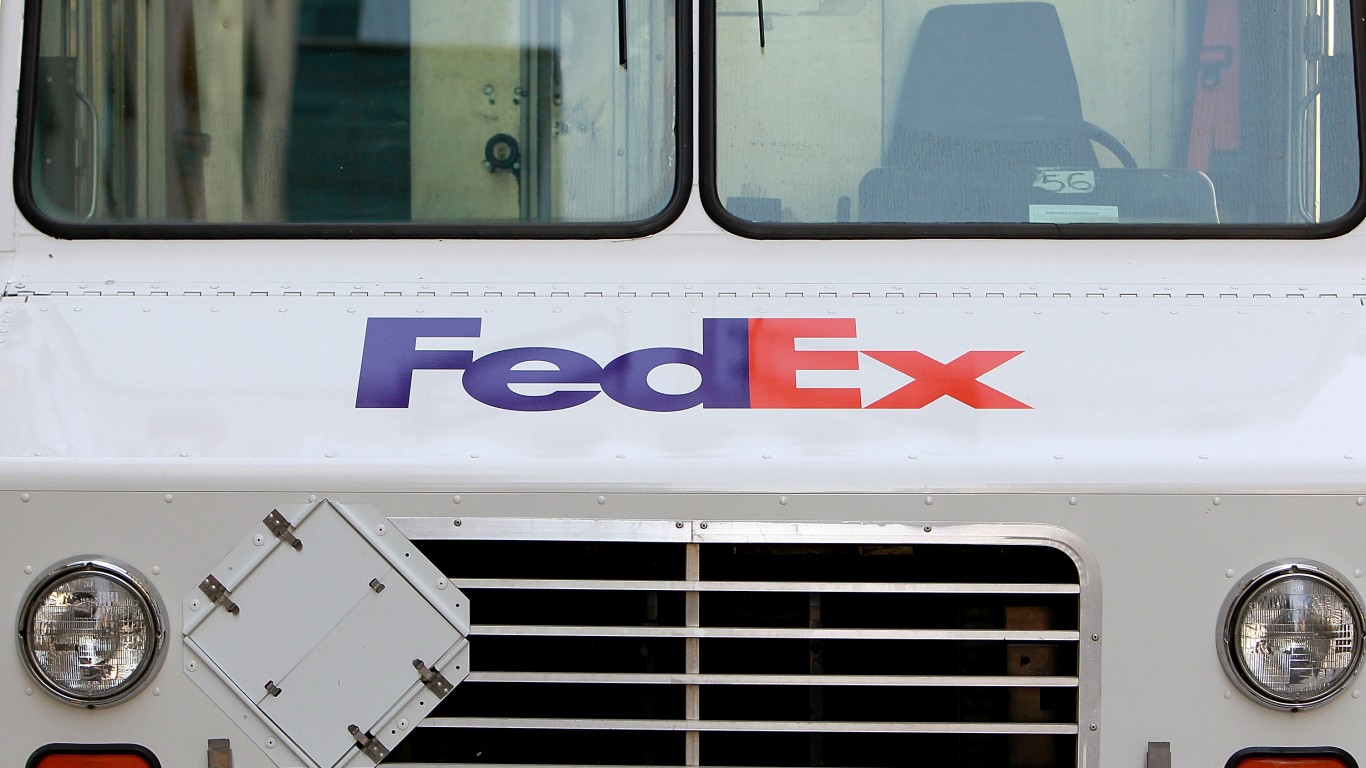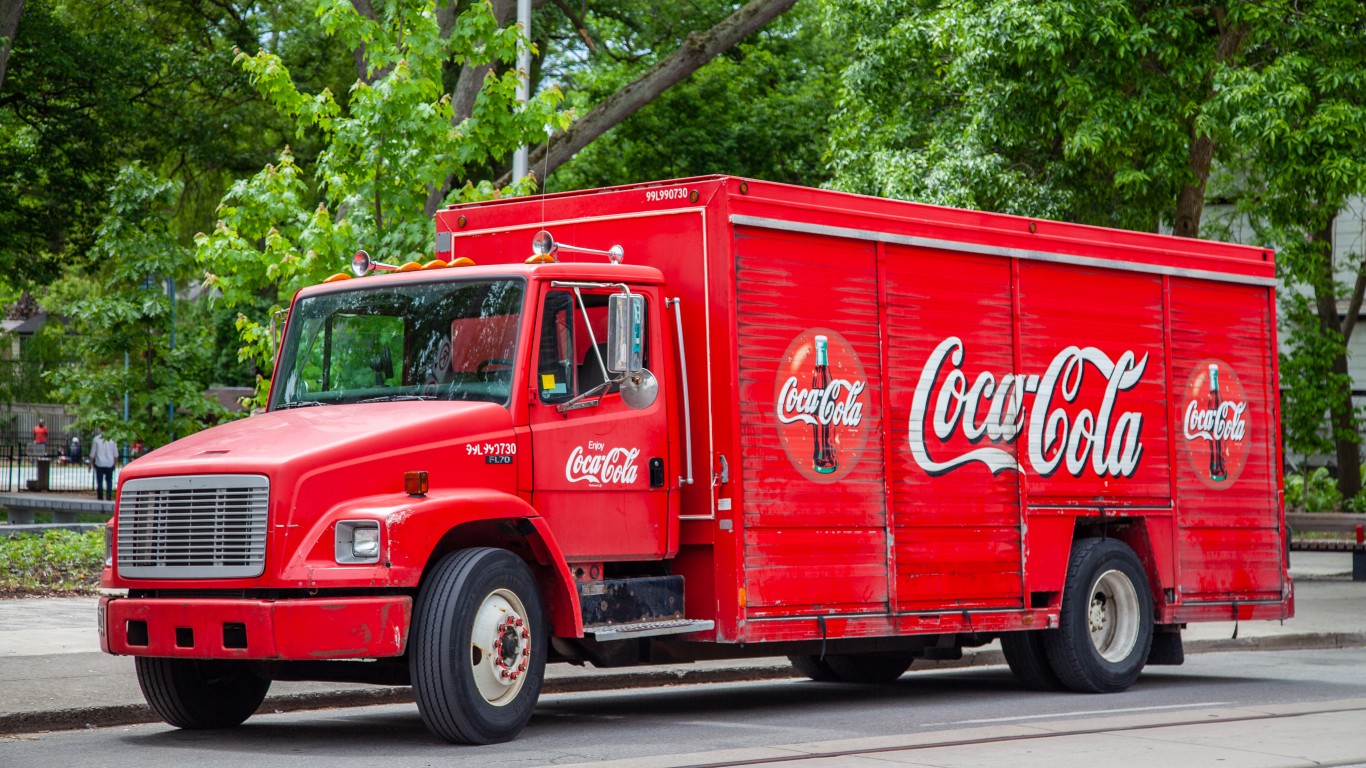
Shortly after Thursday’s opening bell, the Dow was trading down 0.13%, the S&P 500 down 0.37% and the Nasdaq Composite 0.74% lower.
Before U.S. markets opened on Thursday, Levi Strauss beat the consensus earnings per share (EPS) estimate by a penny and the revenue estimate by 4.4%. The apparel maker also reaffirmed fiscal-year guidance near the low end of its previous range. A dip of 360 basis points in gross margin, however, gave investors pause. Shares traded down 11.5% early Thursday.
Constellation Brands beat estimates on both the top and bottom lines Thursday morning. It issued in-line guidance for its 2024 fiscal year and raised its dividend payment by 11%. Shares traded 1.4% higher early Thursday.
Lamb Weston also beat top-line and bottom-line estimates. The frozen potato products giant also raised fiscal 2023 EPS and revenue guidance. CEO Tom Werner said that the company expects its momentum to continue in the current (fourth) quarter and to “provide a solid foundation for fiscal 2024.” Shares traded up 3.5% Thursday morning.
U.S. markets are closed Friday, and no notable earnings reports will be released until Monday afternoon. There are also two reports due out before Tuesday’s opening bell.
Albertsons
In mid-October, Albertsons Companies Inc. (NYSE: ACI) and Kroger announced that the two companies would merge after Kroger acquired all the outstanding shares of Albertsons stock and Albertson’s paid a special dividend of some $4 billion to shareholders. Following a court ruling allowing the special dividend, Albertsons’ shareholders paid the dividend on January 20. In early February, an antitrust complaint challenging the merger was filed by 26 customers, and an antitrust watchdog group sent a letter to FTC chair Lisa Kahn opposing the merger. No decision on the merger has been arrived at yet.
Albertsons stock trades down about 38% for the past 12 months and up 7.6% since the merger was announced in mid-October. The company reports quarterly results first thing Tuesday morning.
The number of analysts covering the company has dropped from 20 to 17 since October, and 12 of those have a Hold rating. The other five have a Buy or Strong Buy rating. At a recent price of almost $21.00 a share, the stock trades about $1.50 above its closing price on the day the deal with Kroger was announced.
Fiscal 2023 fourth-quarter revenue is forecast at $18.2 billion, which would be up 0.2% sequentially and by 4.7% year over year. Adjusted EPS are tabbed at $0.68, down 21.9% sequentially and down by 9.3% year over year. For the full fiscal year that ended in February, Albertsons is expected to post EPS of $3.24, up 5.5%, on sales of $77.58 billion, up by nearly 8%.
Albertsons stock trades at 6.5 times expected 2023 EPS, 7.0 times estimated 2024 earnings of $3.00 and 6.8 times estimated 2025 earnings of $3.07 per share. The stock’s 52-week trading range is $19.14 to $36.00. Albertson’s pays an annual dividend of $0.48 (yield of 2.30%). Total shareholder return for the past year was negative 16.02%.
CarMax
Shares of used car retailer CarMax Inc. (NYSE: KMX) have lost 37.5% of their value over the course of the past 12 months. CarMax reports quarterly results before markets open on Tuesday.
The used car dealership sells, services and finances purchases at some 220 stores around the United States. Sales reached a pandemic-driven peak in the June quarter of last year and have declined in the two quarters since then as buyer sentiment is weak due both to pricier used cars and high interest rates on car loans. Cox Automotive reported that used car loans came with an average 11.3% interest rate in March, p from 7.7% in March of last year.
Of 20 analysts covering the stock, nine have a Buy or Strong Buy rating and another eight have Hold ratings. At a share price of around $62.40, the upside potential based on a median price target of $65.00 is 4%. At the high price target of $141.00, the upside potential is 243%.
Fourth-quarter revenue is forecast at $6.1 billion, down 6.3% sequentially and by 20.7% year over year. Adjusted EPS are expected to come in at $0.24, flat sequentially and down 75.5% year over year. For the full 2023 fiscal year that ended in February, CarMax is expected to report EPS of $2.85, down 58.6%, on sales of $30.05 billion, down 5.8%.
CarMax stock trades at 21.9 times expected 2023 EPS, 21.9 times estimated 2024 earnings of $2.85 and 15.2 times estimated 2025 earnings of $4.10 per share. CarMax’s 52-week range is $52.10 to $106.24. CarMax does not pay a dividend, and total shareholder return over the past 12 months is negative 37.45%.
Tilray
Shares of cannabis grower Tilray Inc. (NASDAQ: TLRY) have dropped by more than 65% over the past year. Tilray reports quarterly results after markets close on Monday.
Early last month, the company settled a shareholder lawsuit for $46.4 million, including attorney’s fees. The suit charged that the company had made false statements related to its business and the value of a deal it had made with a brand company. Revenue also has been declining, but the company has strong alcoholic beverage brands in the United States that could help the company’s cannabis sales in the country if weed is ever legalized.
Of 18 analysts covering the stock, 14 have a Hold rating and four have Buy ratings. At a share price of around $2.40, the upside potential to the median price target of $3.38 is 40.8%. At the high price target of $9.00, the upside potential is 275%.
For Tilray’s third quarter of fiscal 2023, analysts are looking for revenue of $150.13 million, up 4.2% sequentially but down 1.1% year over year. Analysts expect the company to post a loss per share of $0.06, equal to its prior quarter loss, but worse than last year’s third-quarter EPS of $0.07. For the full 2023 fiscal year ending in May, analysts forecast a loss per share of $0.28, compared to last year’s loss per share of $0.31. Full-year sales are expected to slip by 3.3% to $607.62 million.
Tilray is not expected to post a profit in 2023, 2024 or 2025. The company’s enterprise value to sales multiple is 2.8 times in 2023, 2.5 times in 2024 and 2.2 times in 2025. The stock’s 52-week range is $2.28 to $8.15. Tilray does not pay a dividend and the total return to shareholders last year was negative 65.29%.
In 20 Years, I Haven’t Seen A Cash Back Card This Good
After two decades of reviewing financial products I haven’t seen anything like this. Credit card companies are at war, handing out free rewards and benefits to win the best customers.
A good cash back card can be worth thousands of dollars a year in free money, not to mention other perks like travel, insurance, and access to fancy lounges.
Our top pick today pays up to 5% cash back, a $200 bonus on top, and $0 annual fee. Click here to apply before they stop offering rewards this generous.
Flywheel Publishing has partnered with CardRatings for our coverage of credit card products. Flywheel Publishing and CardRatings may receive a commission from card issuers.
Thank you for reading! Have some feedback for us?
Contact the 24/7 Wall St. editorial team.

 24/7 Wall St.
24/7 Wall St. 24/7 Wall St.
24/7 Wall St.



